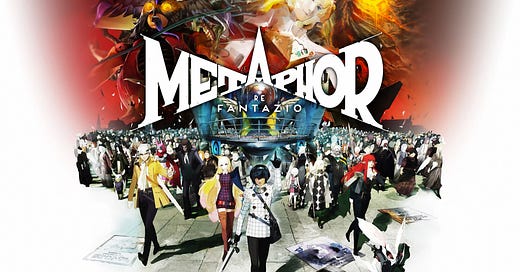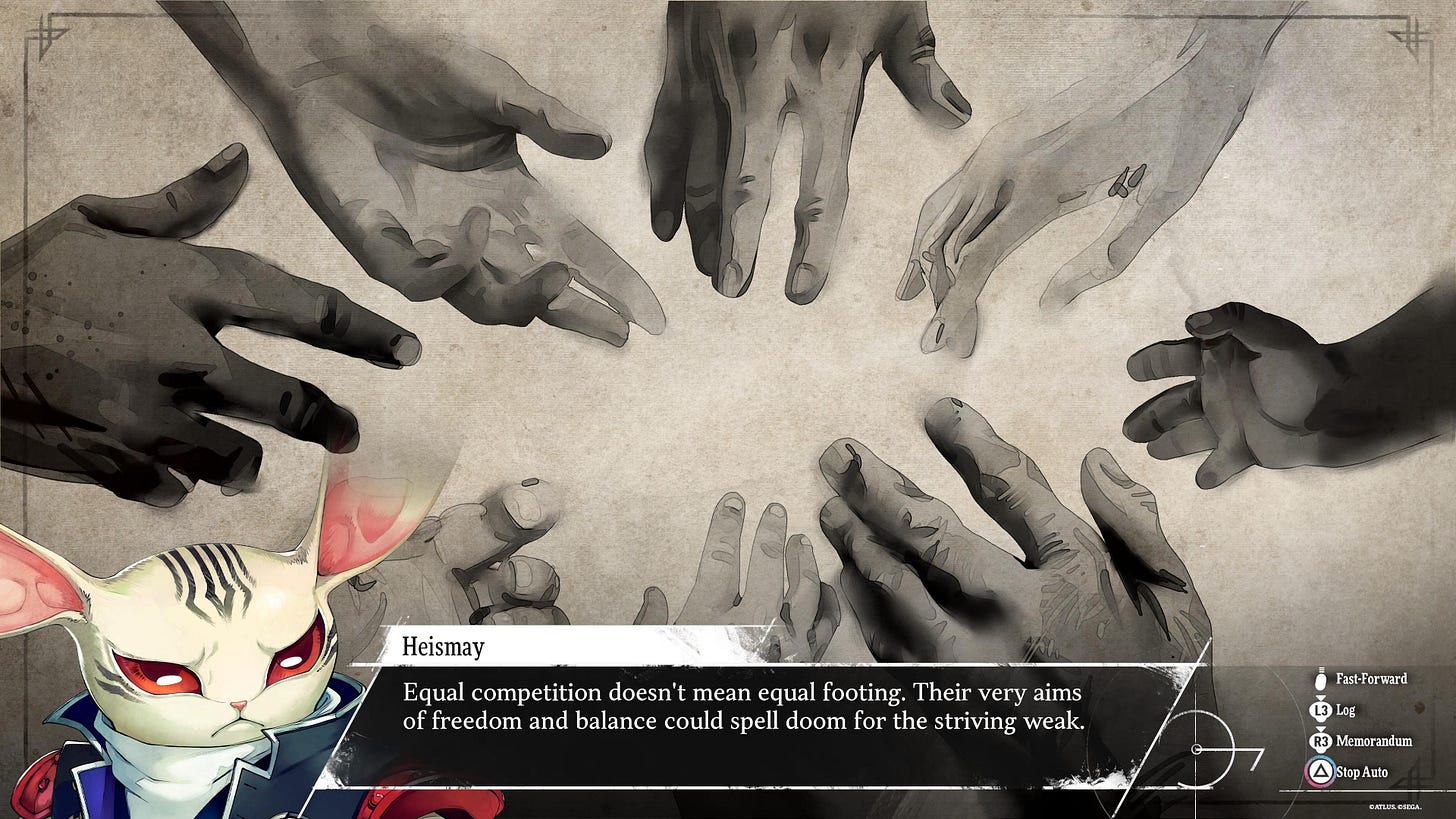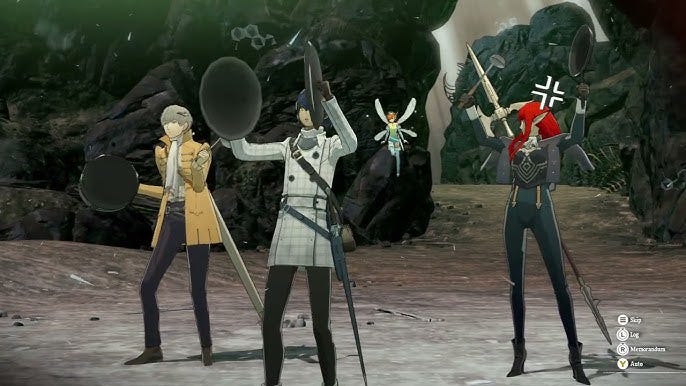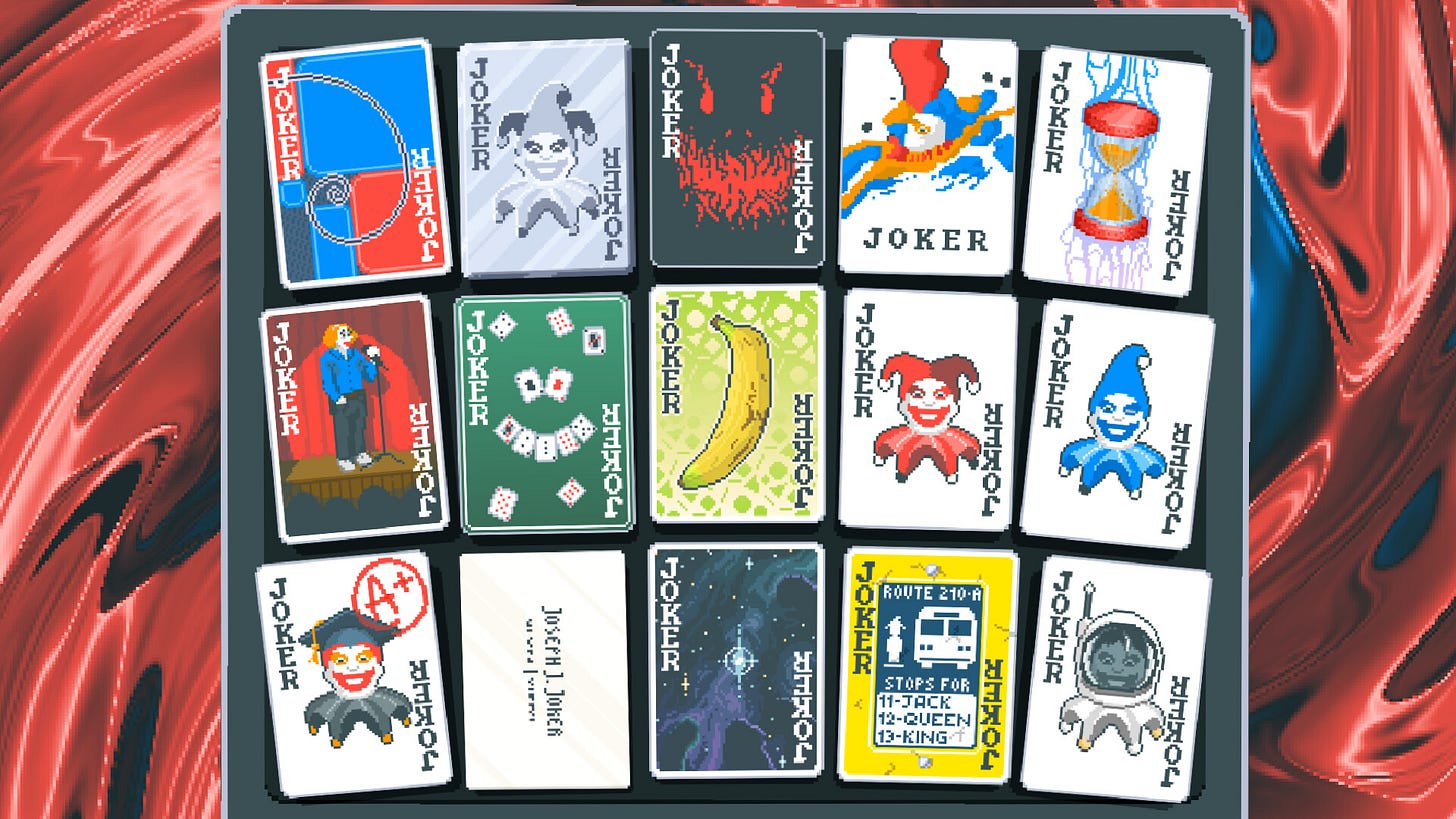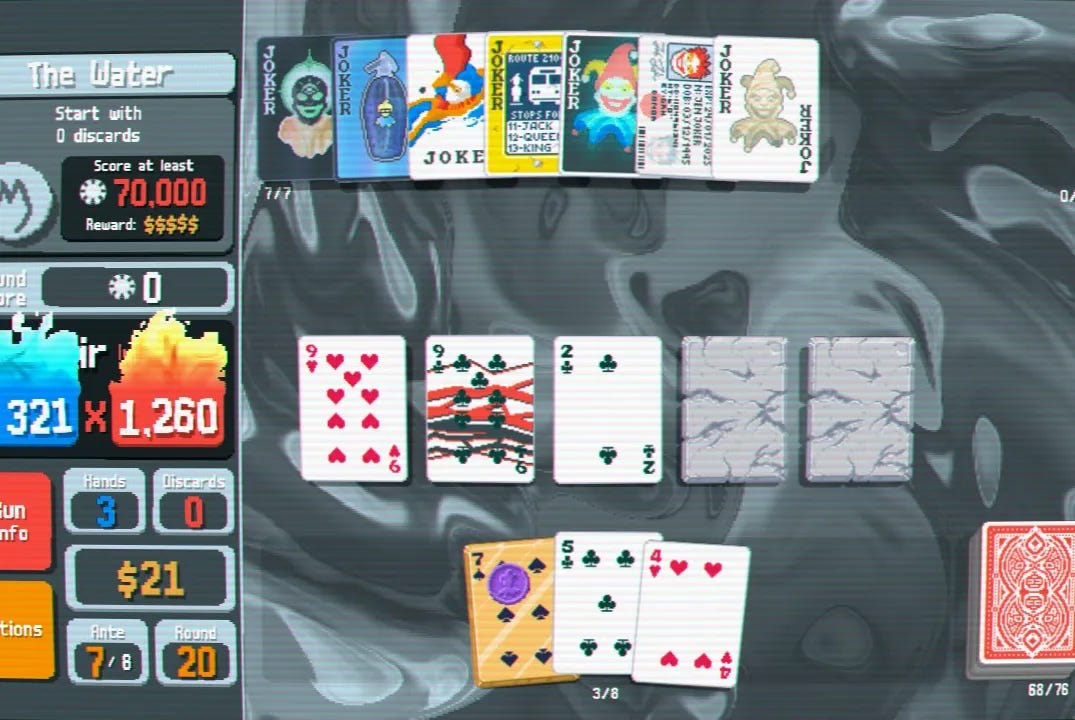Every week (or so) I plan to let readers in on what games I am actually playing every week. I try to at least touch most new releases, but most of the time I’m playing games I haven’t played from years ago or games I haven’t stopped playing since they were released. These are quick thoughts on what I’m currently playing, not necessarily what’s new and what’s hot. This segment is inspired by an old Game Informer column, dedicated to seeing what the staffers were playing on their own time. Enjoy!
Metaphor: ReFantazio
Last entry I was lamenting the fact that despite Persona 4 being one of the best JRPGs of all time, the game falls short when it comes to dialogue, outdated jokes and the limitations of its high school setting. As if my prayers were answered, Metaphor: ReFantazio was released into the world this month with none of those problems and numerous improvements to Atlus’ Persona formula. Metaphor trades the modern-day high school setting for a darker fantasy setting as well as the corny, anime-like humor and pervy one-liners for actually funny dialogue and well-thought philosophical discussions. Metaphor makes the Persona series look like a beta for the real thing, both as an RPG combat and a visual novel.
I went into Metaphor expecting Persona with a job system like Bravely Default or Final Fantasy IV. While it is basically just that, it refines some gameplay elements from the Persona series that didn’t quite make sense or were barriers meant to extend the game time. For example, social links, or supporters as they are called in Metaphor, do not progress arbitrarily based on dialogue choices or the type of archetype (think persona) equipped - they just let the player enjoy the conversation and pick what they would like to say without worrying about slowing down progress for that supporter. Other quality of life updates include being able to fast travel directly into stores, clearly marked activities for improving personal stats and being able to review lore at any moment like Final Fantasy XVI.
The main character is young, but grown, and therefore doesn’t need to be forced to stay in the house like Persona protagonists (unless it’s for plot reasons) and can regularly do the most of the same activities at night. These changes seem little, but they allow the player to move through the game without worrying about missing a specific event or stat boost as long as they pay attention, even just a little bit. In the end, you’re playing more game than you were in the Persona games, with less downtime between dungeons that feels like a waste. There are no random quizzes or tests, no forced school trips and overall no more filler for the sake of filler. The day-to-day gameplay loop flows better because there is more freedom to spend time how the player wants to rather than them hoping a random event doesn’t shove them into 30 minutes of cutscenes. When it is urgent to watch the time, say for a main mission with a deadline, it remains urgent but not restricting.
Grinding is also unnecessary, as combat is more about having the right jobs, placing your party members in the right spots and using your MP, or mana points, wisely rather than buffing yourself enough to steamroll the competition like Persona 3 and 4, although 5 got better in that respect as well. It’s more about strategy overall. Although the combat is fair, some battles can be lost quickly if the player isn’t adapting by picking different jobs for their party or mixing the team up for different skills. The new job system also allows for more freedom in combat since each party member can switch jobs at any time, which is also worked into the plot very neatly. Want to have three knights and one mage? You’ll probably die, but you can do that.
My favorite part of this game, by far, is the complete tonal shift from the Persona series. While they may not be the same series, the two share a ton of similarities between each other as well as the Shin Megami Tensei series. Archetypes are personas, supporters are social links and many of the same special moves are present. But, Metaphor just does it better. The story is dark and mysterious from the beginning, starting with an assassinated king and 100 different questions. The other party members’ motivations are smoothly folded into the main plot, while the side missions and stories hold weight on their own by buffing up the lore of the United Kingdom of Euchronia, which is actually diverse in terms of tribes and race. There are actually more than one dark skin characters in this game, compared to Persona games, and the protagonist isn’t exactly a part of the majority.
The developers also, finally, gave the protagonist a male best friend, Strohl, who isn’t a weird pervert or a homophobic bully. His worst crime is being rich in his childhood. Maria is like a little sister to the protagonist, a la Nanako from Persona 4, but she has more layers to her character than “Why isn’t daddy home,” or “Mom died and I am sad.” My personal favorite so far is Neuras, the gauntlet runner driver who is also an eccentric, fast-talking inventor with a storied past.
Discrimination, freedom and fantasy are the dominant themes of the story, and none of it seems hamfisted or harsh for the sake of being harsh. The main character is from one of the most hated tribes in the game, and as such the player experiences racism regularly throughout the game. It’s abrasive but it works well to establish the setting. The conversations between party members are layered, with some having more idealistic views than other. Comedic moments between characters are cute and hinge on character traits, like Hulkenberg’s over-serious nature or Strohl’s silver-spoon background rather than the sophomoric humor of the Persona series. There also isn’t any sort of overly drawn out fanservice of the female characters. Hulkenberg is a well-trained, knowledgeable, albeit ditzy, former knight that doesn’t bend over sensually or fawn over the protagonist. She also has some of the more profound dialogue of the party. It’s refreshing for this type of game.
The characters feel less like caricatures and more like representatives of the United Kingdom of Euchronia’s prevailing attitudes and political stances, as well as the effects of those stances. The game is anti-royalty and anti-discrimination without spelling it out all the way, which is refreshing. If anything, it handles these topics much, much better than Final Fantasy XVI’s surface level discussions of inequality and discrimination.
Metaphor is a large step up from the Persona series, and I’d recommend it to anyone remotely interested in it or other JRPGs. It’s gameplay loop is addictive, the story leaves the player anticipating the next plot point and the characters feel alive. I’m barely past the second dungeon, so I don’t even know how what else is in store for the plot.
Don’t know if Metaphor is your thing yet? Don’t worry, there’s a demo of the prologue that took me 7 hours to beat. I play it on PS5, but it’s also on Xbox and PC.
Balatro
Who knew there could be a solo card game better than solitaire?
Balatro, made by a one-man team and released this February, is a roguelike card game where jokers give you advantages, tarot cards award other bonuses and the goal is to run up the score and make it past the 8th round, or ante, as the score requirement climbs higher and higher. Players can play standard poker hands or upgrade their deck to the point that they can make five-of-a-kind hands or use jokers to multiply their scores to the thousands.
There isn’t much to say about Balatro, because the addiction doesn’t set in until you play a round. Well it just looks like a card game. No, it’s more than that. It’s a game that will take hours away from you while you try to figure out how to make your 4s and 10s as powerful as possible so you can steamroll a run. It’s about filling your deck with gold cards so that you can buy everything in the shop. It’s about losing so much that you just need one more win.
Play Balatro. It’s on literally everything: PC, Switch, Xbox, PlayStation and even mobile (I mostly play on Switch, then it’s PC or phone). Or don’t. Because once you see that score rise and those jokers get unlocked, there’s no going back.


